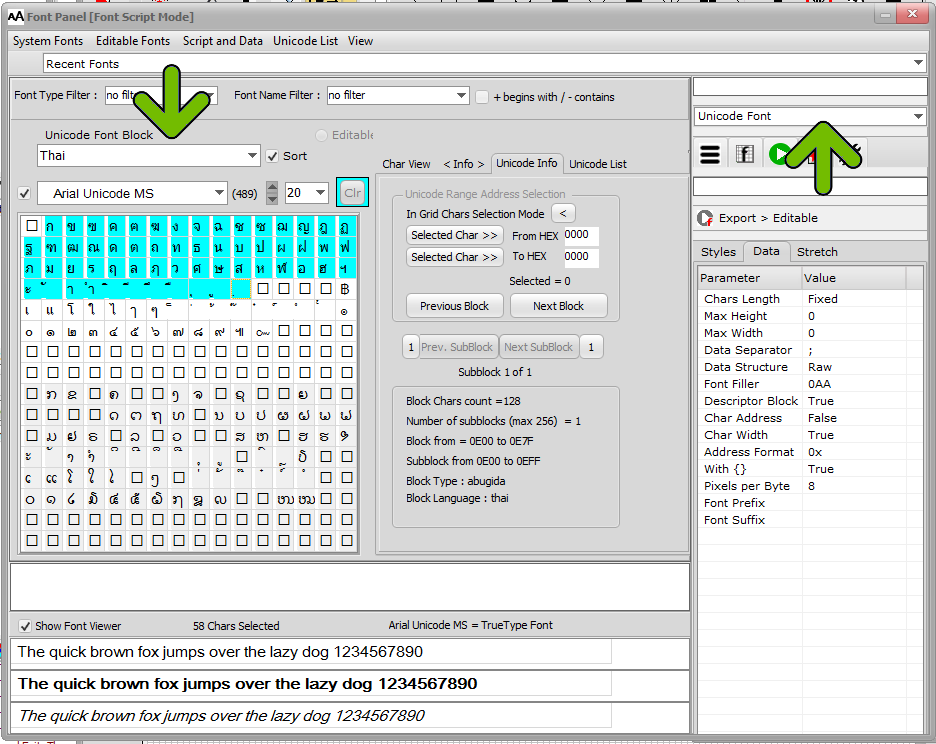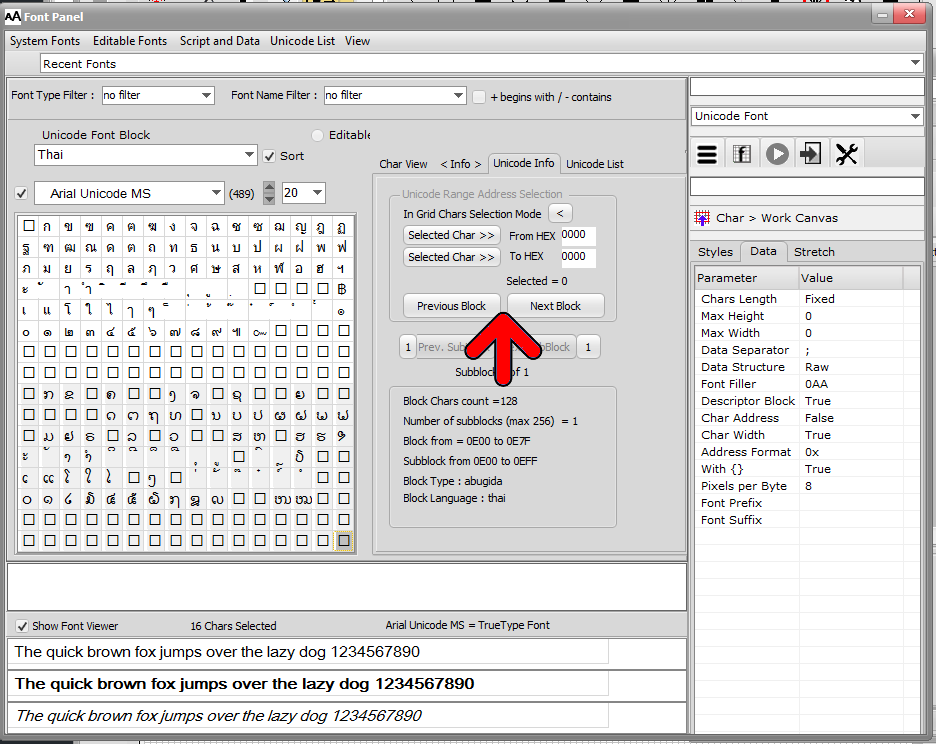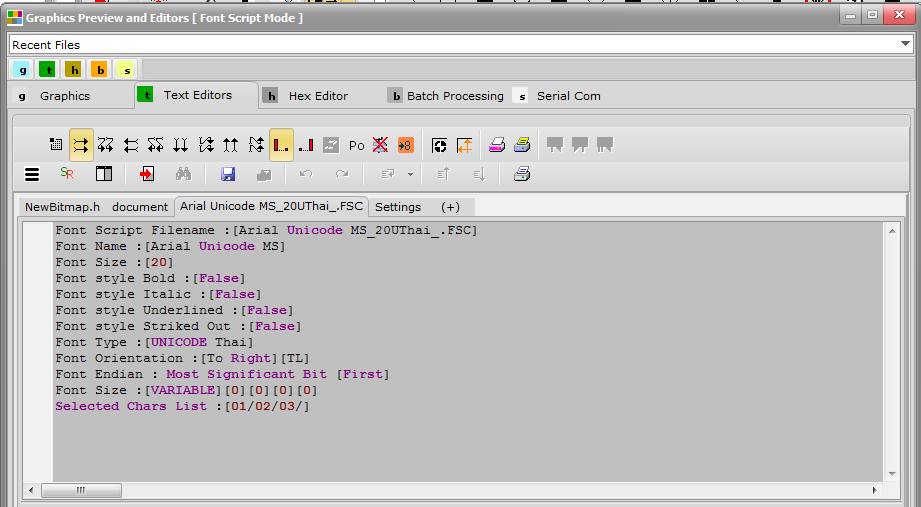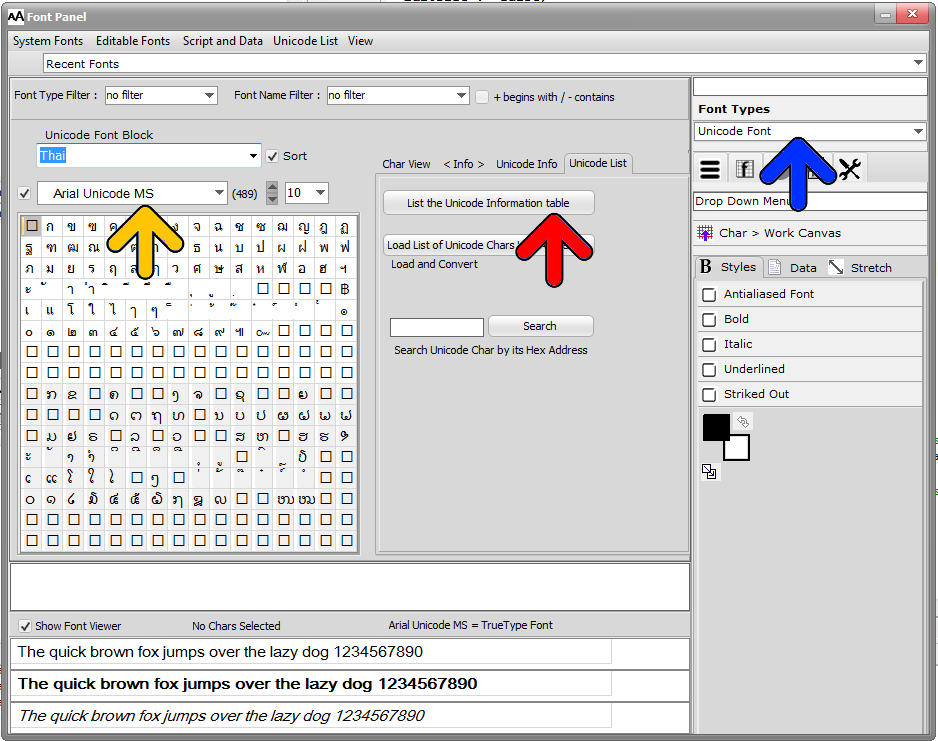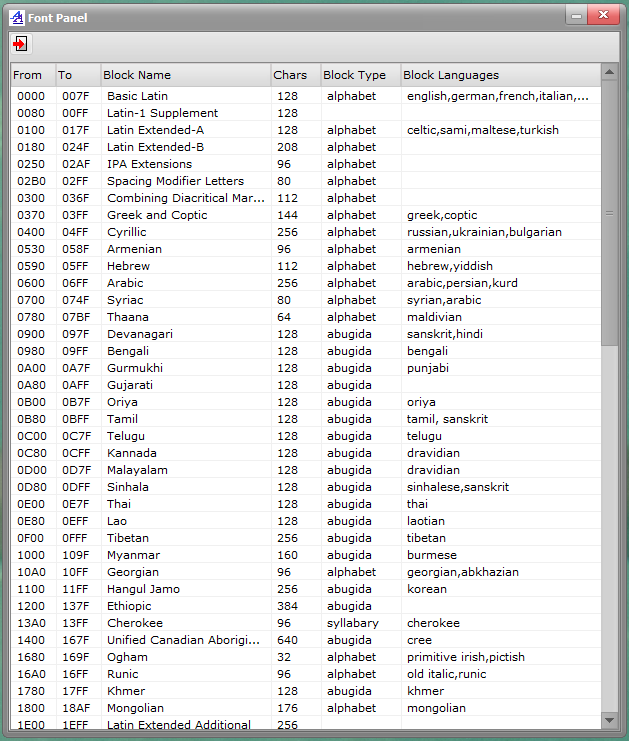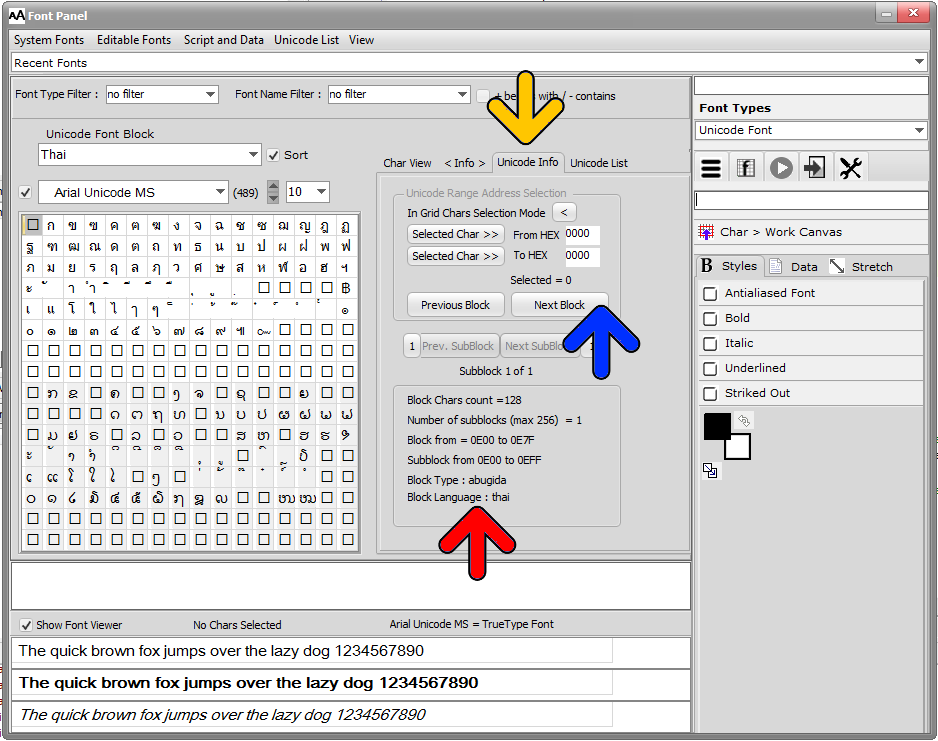Bitmap2LCD is a tool for programming small Graphic LCDs in embedded systems and a programmable graphic and text processing tool.
Bitmap2LCD :: Generate International Fonts / Characters
Standard Edition Update V3.7c
There are different ways to select the Unicode characters to generate GLCD Font data.
- Enter Font Script Mode ( in the GLCD Font Main Menu ) , select the Unicode mode , the font, the font Size and Unicode Block.
- Select the Chars to export with the mouse inside the grid ( Are selected = Teal Color )
- Generate Data

way to generate GLCD Fonts, for example when more than 256 Chars :
- Enter Font Script Mode ( in the GLCD Font Main Menu ) , select the Unicode mode , the font, the font Size and Unicode Block.
- Enable the Address Range Selection (red Arrow)
- Enter the Start and End Hexadecimal Addresses ( From Hex and To Hex )
- Generate Data

Then read the font script (see below) for the other settings to be defined first to generate Font Data : The data orientation, the endianness, the Font Size, if fixed or variable length etc…
